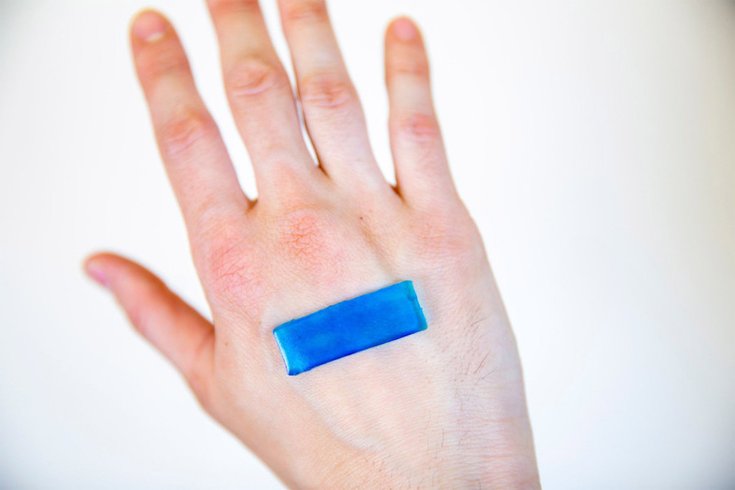
July 25, 2019
 Photo courtesy/Wyss Institute at Harvard University
Photo courtesy/Wyss Institute at Harvard University
Harvard's "bioinspired" bandage.
While the Barbie and Scooby-Doo bandages of past got the job done, they certainly don’t compare to the healing power of a high-tech bandage developed by researchers at Harvard University.
Most gauze bandages simply cover wounds to protect from infection and aid in the healing process, but these "active adhesive dressings," or AADs, have been engineered with antimicrobial heat-responsive hydrogels that can close wounds faster and prevent bacterial growth without the need for additional treatment, the Harvard Gazette reports.
"This technology has the potential to be used not only for skin injuries, but also for chronic wounds like diabetic ulcers and pressure sores, for drug delivery, and as components of soft robotics-based therapies,” said study author David Mooney.
RELATED READ: Did you know wounds heal faster during the day? Here's why
The inspiration for these new-and-improved bandages come from embryos — which are able to fully heal their own skin without forming scar tissue, thanks to a healing protein that pulls the edges of the wound together, per Harvard.
To replicate this in the bandages, researchers called upon previously designed tough adhesive hydrogels, and added a temperature responsive aspect that repels water and shrinks at 90 degrees Fahrenheit. This, when applied to our toasty bodies cause the bandage to contract, pulling the wound together, just as in embryos.
Plus, silver nanoparticles scattered throughout the covering naturally destroy microbes all the while.
“The AAD bonded to pig skin with over 10 times the adhesive force of a Band-Aid and prevented bacteria from growing, so this technology is already significantly better than most commonly used wound protection products, even before considering its wound-closing properties,” said Benjamin Freedman, a postdoctoral fellow at Harvard leading the research team.
Tested on mouse skin, the bandage closed wounds by about 45 percent in size and much faster than standard treatments.
More study is needed before these high-tech bandages can hit drug store shelves, but the product seems promising and safe to use on living human tissue, researchers said.